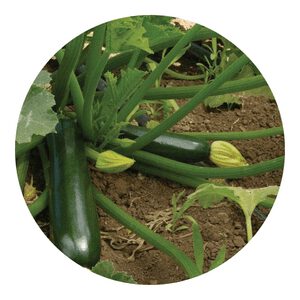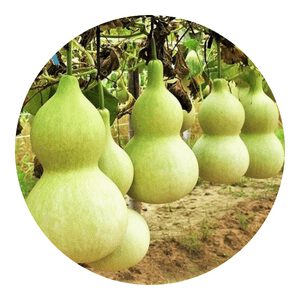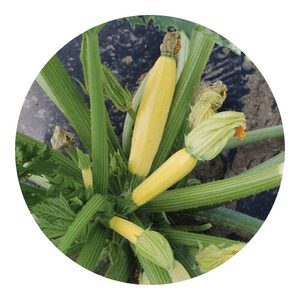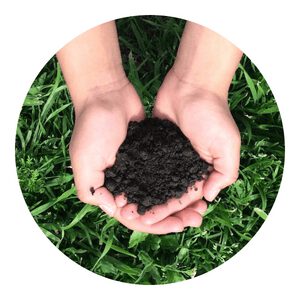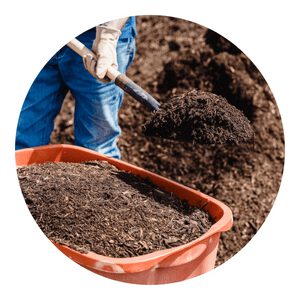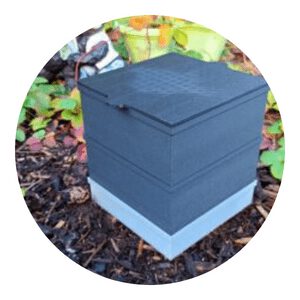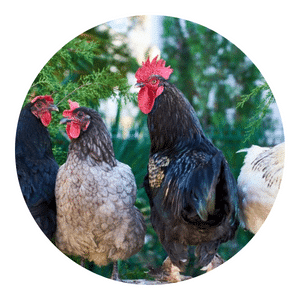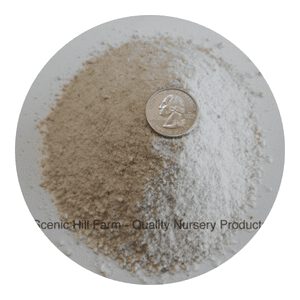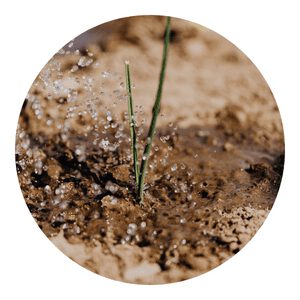How to grow organic Squash
Chappy Gardener Releases Comprehensive Guide on How to Grow Organic Squash
With the warmer months upon us, many home gardeners are looking to add some fresh fruits and vegetables to their repertoire.
Chappy Gardener, a well-known resource for organic gardening information, has just released a comprehensive guide on how to grow organic squash.
Squash Menu
The Benfits Of Organic Squash
Organic squash is a great choice for your family’s health.
Squash is low in calories and high in fiber, making it a healthy and filling food choice.
Squash is also a good source of vitamins A, C, and E, as well as potassium.
Buying organic squash means you’re getting a food that is free from pesticides and other harmful chemicals.
How to Plant Organic Squash
Organic squash plants are a great choice for gardeners looking to avoid using pesticides in their garden.
Squash plants are easy to grow and can be harvested late into the fall.
When planting organic squash, be sure to select a spot in your garden that receives full sun and has well-drained soil. Squash plants grow best when spaced 4-5 feet apart.
Sow the seeds 1 inch deep and 2-3 inches apart. Once the seeds have germinated, thin the plants to the desired spacing.
Keep the soil moist but not wet by watering regularly. Feed the plants with a organic fertilizer every 2-3 weeks. .
How to Water Organic Squash
Organic squash is a healthy and delicious vegetable that can be easily grown in your garden.
The key to watering organic squash is to make sure the soil is evenly moist but not wet.
You can water your squash plants using a garden hose or watering can.
Be sure to water the plants early in the morning or late in the evening so the leaves have time to dry before nightfall.
When to Fertilize Organic Squash
Organic squash is a healthy and environmentally friendly alternative to the conventionally grown variety.
Like other vegetables, organic squash benefits from regular fertilization. When is the best time to fertilize organic squash?
The answer to that question depends on the type of squash you are growing.
Summer squashes, such as zucchini and yellow crookneck, should be fertilized every two weeks starting when the plants are about six inches tall. Fertilize again when the vines start to run.
Winter squashes, such as acorn, butternut, and spaghetti, should be fertilized only once—when the vines are about six inches long.
Organic gardeners can use fish emulsion or compost tea as an organic fertilizer.
How to Harvest Organic Squash
Harvesting organic squash can be a rewarding experience for gardeners who want to enjoy the fresh, delicious taste of this versatile vegetable.
Here are some tips on how to harvest organic squash:
Determine when to harvest: Squash can be harvested when they reach maturity, which typically occurs 40 to 60 days after planting.
Signs of maturity include a hard rind and a dull, matte appearance.
The size of the squash will also indicate when it’s ready to be harvested.
For example, zucchini should be harvested when they are 6 to 8 inches long and 2 inches in diameter.
Use the right tools: When harvesting squash, it’s important to use the right tools to avoid damaging the plant or the fruit.
A sharp pair of pruning shears or a serrated knife can be used to cut the stem of the squash.
Be sure to leave a small section of stem attached to the fruit to prevent damage to the fruit itself.
Harvest in the morning: It’s best to harvest squash in the morning when the temperatures are cooler.
This can help preserve the quality of the fruit and prevent it from drying out.
Handle with care: Squash can be easily damaged during the harvesting process, so it’s important to handle them with care.
Avoid dropping or throwing the fruit, as this can cause bruising or other damage.
Instead, gently place the squash in a basket or other container.
Store properly: Once you’ve harvested your squash, it’s important to store it properly to preserve its freshness.
Store the squash in a cool, dry place, such as a pantry or cellar.
Avoid storing them in direct sunlight or in a humid environment, as this can cause the fruit to spoil.
By following these simple tips, you can harvest organic squash that is fresh, delicious, and nutritious. Enjoy your bounty!
Types of squash
There are many types of squash, all of which can be grown organically.
The most common type of squash is the pumpkin, which is used in many traditional fall dishes.
Other popular types of squash include butternut, acorn, and zucchini.
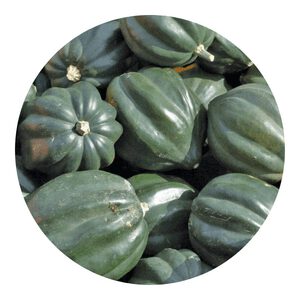
Acorn

Green Eggs
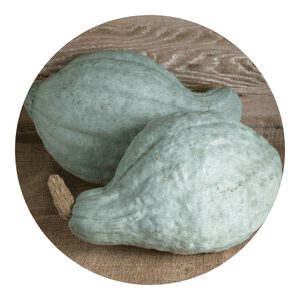
Blue Hubbard
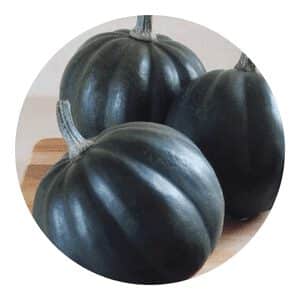
Honey Bear

Papaya Pear
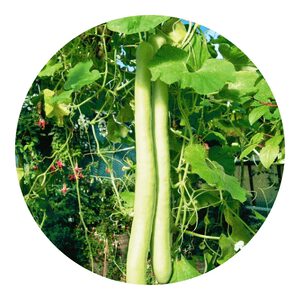
Cucuzza Squash

Spaghetti
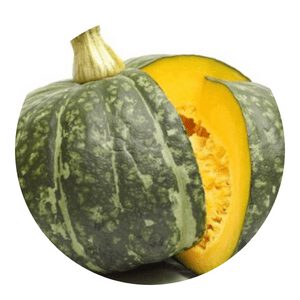
Kabocha
The ideal conditions for growing squash organically
Squash is a vegetable that is best suited for warm climates.
The plants need lots of sun and plenty of space to grow.
They should be planted in soil that is rich in organic matter and has been amended with compost or manure.
Squash plants need regular watering and should be fertilized with a organic fertilizer every 2-3 weeks.
How to control pests naturally when growing squash
One way to control pests naturally when growing squash is to plant marigolds around the plants. Marigolds release a scent that deters pests, and they also act as a natural fertilizer.
Another option is to plant garlic near the squash plants. The smell of garlic will also deter pests.
If there are already pests present, you can try spraying the plants with a mixture of water and dish soap. The dish soap will kill the pests without harming the plants.
how to get rid of ants on squash plants
If ants are a problem on your squash plants, there are several effective methods for getting rid of them.
One is to use a cedar shake treatment around the base of the plant.
This will repel ants and prevent them from building nests.
Another is to make a ant-repelling mix using diatomaceous earth, water and vinegar.
Apply this around the base of the plant and around any areas where ants like to congregate.
Finally, you can use an insecticidal soap spray to kill any ants that are nesting on your plants.
Tips to Keep Ants Away from squash
There are a few simple things homeowners can do to help keep ants away from squash crops – water the plants regularly, avoid spraying them with insecticides close to harvest time, and remove any fallen fruit.
All of these tips should be used in concert with one another to create an effective barrier against pests.
What is the Best Soil For squash?
There is no one definitive answer to this question as different varieties of squash will do better in different soils.
However, a good soil for growing squash includes plenty of organic matter (compost and leaves) and ample amounts of sand, gravel and water.
Common Problems with Organic Squash
Organic squashes, like all organic fruits and vegetables, can be more susceptible to pests and diseases than conventionally grown produce.
This is because organic growers do not use synthetic pesticides or fertilizers, which can help to control pests and diseases.
There are several common problems that can occur with organic squash plants, including vine borers, powdery mildew, and squash bugs.
What is the best organic fertilizer for squash?
Organic fertilizers are a great choice for gardeners who are looking to grow healthy plants without using synthetic chemicals.
When it comes to fertilizing squash, there are many organic options to choose from.
compost, manure, and bone meal are all good choices for organic squash fertilizer.
However, each of these fertilizers has its own set of benefits and drawbacks.
Compost is a great source of nutrients for plants, but can be slow to break down.
manure is high in nitrogen and can help promote vegetative growth, but it can also be smelly and attract pests.
Bone meal is a slow-release fertilizer that is high in phosphorus, which helps promote flowering and fruit production.
Compost
Compost is a great organic fertilizer for squash.
When applied in the fall, it helps to promote vigorous growth and yields in the winter.
Mixing compost with other organic fertilizers can also help to create a balanced garden soil.
Follow these instructions to make compost for squash:
1) Collect leaves, grass clippings, and other organic materials from around your yard or garden.
2) Spread the materials evenly over a large logs or tarp and let them sit for several months (6-8 is ideal).
3) Turn the material every few weeks so that it decomposes evenly.
4) After a few months, you will have compost that is rich in nutrients and ready to use on your squash plants.
Worm castings
When it comes to growing squash, few things are as frustrating as having a patch of vines that just won’t produce any fruit.
One common cause of poor squash production is a lack of fertilizer.
Fortunately, there are several options for organic gardeners to use worm castings as a fertilizer.
Worm castings are high in nitrogen and other nutrients, making them an excellent choice for fertilizing squash plants.
Make sure to apply the castings at the beginning of the growing season, before growth really begins.
You can also make your own compost using worm castings and other organic materials, which will provide even more nutrients for your squash plants.
Horse manure
If you are a gardener who wants to use organic fertilizer, there is one valuable resource you can use: horse manure. Horse manure is high in nitrogen and other important nutrients, which makes it an excellent option for many garden plants.
Here are some tips on how to use horse manure as organic fertilizer for squash:
1. Choose a time of year when the horse is going to be out of the garden for at least two weeks so that the manure can decompose.
2. Spread the manure evenly over the soil surface where you want the squash to grow.
3. water the area well and fertilize with compost once or twice a month thereafter.
Cow manure
When it comes to growing squash, the use of cow manure can be a great option.
This organic fertilizer can help to promote strong growth and fruiting.
To use cow manure for organic squash, start by mixing 1 cup of cow manure with 3 cups of sand or soil.
Then, add enough water to make a slurry.
Apply the mixture evenly to your squash plants and allow it to sit for two weeks before watering.
Sheep manure
The benefits of using sheep manure as organic fertilizer for squash are numerous.
First, sheep manure is high in nitrogen, which is crucial for growing squash plants.
Second, sheep manure is also rich in other important nutrients like phosphorus and potassium.
Finally, using sheep manure as organic fertilizer helps to improve the health of the soil and reduces the need for synthetic fertilizers.
To use sheep manure as organic fertilizer for squash, first make a compost pile out of straw, leaves, and other organic materials. Then add the sheep manure to the pile and mix well.
The mixture should be moist but not wet.Cover the compost pile with a tarp or heavy object to ensure that it remains warm and humid during the winter months.
Once a month during the summer, turn over the compost so that it is exposed to sunlight and air.
Donkey manure
To use donkey manure organic fertilizer for squash, start by raking it into a pile and breaking it up into small pieces.
You can then add it to your compost pile, or use it as a spot application to your garden.
For best results, apply the fertilizer when the plants are young and just starting to produce fruit.
Goat manure
Goat manure is a great organic fertilizer for squash. It is high in nitrogen, which is essential for the growth of squash plants.
When mixed with other organic matter, like leaves, straw, or compost, goat manure can provide a balanced mix that helps promote healthy plant growth.
Rabbit manure
Organic squash growers love using rabbit manure as an organic fertilizer because it is high in nitrogen, phosphorus, and potassium.
This makes it great for growing fruits and vegetables. Because rabbit manure is also high in organic matter, it helps improve the soil’s structure and drainage.
To use rabbit manure as an organic fertilizer, mix it with water at a ratio of 1 part manure to 5 parts water.
Apply the mixture to your squash plants once a month during the growing season.
Be sure to wear gloves and a mask when working with the manure, as it can be quite smelly!
Chicken manure
There are many ways to use chicken manure as organic fertilizer for squash.
One way is to spread it around the plants before planting. Another way is to add it to the soil before planting.
Adding it at planting time will help improve the quality of the fruits and vegetables that grow from the squash plants.
Fish manure
Squash is a popular vegetable to grow in many gardens. It’s important to use the right type of fertilizer when growing squash, and fish manure organic fertilizer is a great option. Here’s how to use it:
1. Fish manure organic fertilizer is available at many garden stores.
2. To use it, mix 1 part fish manure with 10 parts water.
3. Apply the mixture to your squash plants once a month.
4. You can also add fish manure to your compost pile to help improve the quality of your compost.
5. If you have extra fish manure, don’t throw it away! Use it to fertilize other plants in your garden, like tomatoes or peppers.
Green manure
If you’re looking to get more out of your organic squash plants, adding a little green manure fertilizer can help. Here are four ways to use organic fertilizer for squash:
1. Spread a layer of mulch around the base of your squash plants. This will help retain moisture and encourage root growth.
2. Sprinkle a bit of organic fertilizer around the base of each plant.
3. Mix in some composted green manure with your regular garden soil when planting your squash seedslings or transplants.
Blood meal
Blood meal organic fertilizer is an excellent choice for growing squash. It provides a steady supply of Nitrogen, which helps to promote vigorous growth.
Blood meal is also a good source of other key nutrients, such as potassium and phosphorus.
To use blood meal organic fertilizer, spread it around the base of the squash plants before watering.
Bone meal
Bone meal is a product made of animal bones that are crushed and boiled until the water evaporates. The resulting powder is then used as a fertilizer.
Bone meal can be used to fertilize vegetables, fruits, flowers, and lawns.
To use bone meal as a fertilizer for squash, start by rinsing the squash off with water. Then, add 2 tablespoons of bone meal to a pot filled with water and bring to a boil.
Once boiling, reduce the heat to low and simmer for 30 minutes. After 30 minutes has passed, strain the mixture and pour it over your squash plants.
Let the fertilizer soak into the roots for at least 24 hours before watering.
Alpaca manure
There are many ways to use organic Alpaca manure for fertilizing squash plants.
One option is to spread the alpaca manure around the base of the squash plants before planting.
Another option is to apply the manure as a late fall or winter fertilizer when the plants are dormant.
If you choose to apply the manure in this way, be sure to water it in well.
What is the best way to grow squash?
There are many ways to grow squash, but the best way to grow them is by planting them in hills.
When you plant them in hills, the vines have more room to spread out and the fruit will be cleaner because it won’t be lying in the dirt.
You can also plant them in rows, but make sure you space them out enough so that the vines have room to grow.
How many squash will one plant produce?
The earliest varieties should mature by late July or August.
The average yield is about 1-1/2 pounds per plant but can be as high as 3 pounds per plant.
A single row of plants will produce anywhere from 8 to 12 fruits.
Does squash need a trellis?
When growing squash, you may be wondering if you need to provide a trellis for them.
Squash plants are vines and will grow quickly, so they will need something to climb on.
If you don’t provide a trellis, the vines will grow along the ground and may become tangled. This can make it difficult to harvest the squash and can also lead to rotting.
A trellis can be made out of anything that is sturdy enough to hold the weight of the squash vines, such as bamboo or metal fencing.
What month do you plant squash?
There are many different types of squash, but all of them are planted in the spring.
The best time to plant squash is when the soil temperature reaches at least 60 degrees Fahrenheit. In most parts of the country, this is usually in late May or early June.
Can you grow squash hydroponic?
Yes, you can grow squash hydroponically.
Hydroponics is a method of growing plants in water instead of soil. This method offers several benefits, including a decrease in the amount of water needed to grow plants and an increase in the yields of those plants.
In order to grow squash hydroponically, you will need to purchase a hydroponic system and some nutrient-rich water.
You can then plant your squash seeds in the system and wait for them to germinate.
Once the squash plants have grown large enough, you can begin harvesting them.
How to grow squash greenhouse
Squash is a warm weather crop that can be grown in a greenhouse. The plants need plenty of sun and heat to produce good yields.
Squash can be direct seeded or started from transplants. If starting from transplants, be sure to harden them off for a few days before planting.
Plant the squash in well-drained soil and water regularly.
Fertilize with organic fertilizer when the plants are young and again when they start to flower. Harvest the squash when they are mature.
Plant information:
Organic growing conditions for squash: full sun
How to get squash for organic growing:
Seeds, seedlings
Disadvantages of growing squash:
Cheaper to buy
Irrigation conditions in squash cultivation:
Medium watering
Light conditions in optimal condition for growing squash:
Full sun
Recommended date for planting squash:
March-May
Pests of the squash plant:
Aphids, fungi
Pruning date for squash:
All season
Pruning for squash:
No pruning, but infected leaves can be removed
squash plant size:
Some pumpkins climb and can reach 1-20 m or more, depending on the variety
squash growth rate:
Rapid growth
You can grow squash in a pot:
Yes
Flowering plant:
Flowering date for squash:
1-2 months from sowing
The pollination for squash is carried out by:
Bees
General information about the squash flower:
Yellow flower, there are female flowers and male flowers, both on the same plant
Dilution of the squash blossom:
Can be caused by insects which are close to the ground, stem rot or fungi, aphids
fruit:
Date: May-September
Pests of growing dill fruit:
Worms, fungi, diarrhea
What can be done with quantities of squash fruit?
Soup, cook
Work requirements for the fruit:
If there are insects from the soil that harm the plant, it is necessary to create a separation between the plant and the soil
How long does it take for the buckwheat to bear fruit?
4-7 months
Growing from seeds:
squash sowing:
Simple sowing, large seeds and relatively high chances of germination.
It is recommended to grow squash in a sheltered place before the end of winter, so that it will yield faster for a longer time before winter arrives.
Saving squash seeds until sowing:
A cool, dry place
squash sowing date:
March-May
Sowing distance:
Between 30 and 100 cm, depending on the variety
Depth of seed sowing:
1-2 cm
Conditions for sowing squash:
Mineral-rich soil
Watering squash seeds:
Reasonable watering
Germination time for squash:
3-10 days
Terms of sprouting squash?
Humidity, heat, sun
Latin:
Cucurbita moschata
Other names for squash:
Mini pumpkin, elongated pumpkin
If you have chosen to grow it is recommended to grow varieties that can not be bought
If you like Dolorit, it is recommended to grow:
Zucchini, pumpkin, sweet potato
Expand Your Squash horizons With These Helpful Guides
You love growing squash, but you feel like you’ve hit a wall.
You’re stuck in a rut, only growing the same types of squash year after year.
You want to branch out and try new things, but you don’t know where to start.
These helpful guides will expand your squash growing horizons and help you break out of your rut.
You’ll learn about new squash varieties, how to grow them, and what recipes to use them in.
Grow your own squash!
Get Your Garden Growing with the Best Squash Seeds Around
In conclusion, the guide to growing organic squash was very informative.
I now know the necessary steps to take in order to have a successful harvest.
I am excited to get started on my own garden and hope to have a bountiful harvest of my own.
Thanks, Chappy!
Click To Grow
Helps Us Grow – Share If You Like






